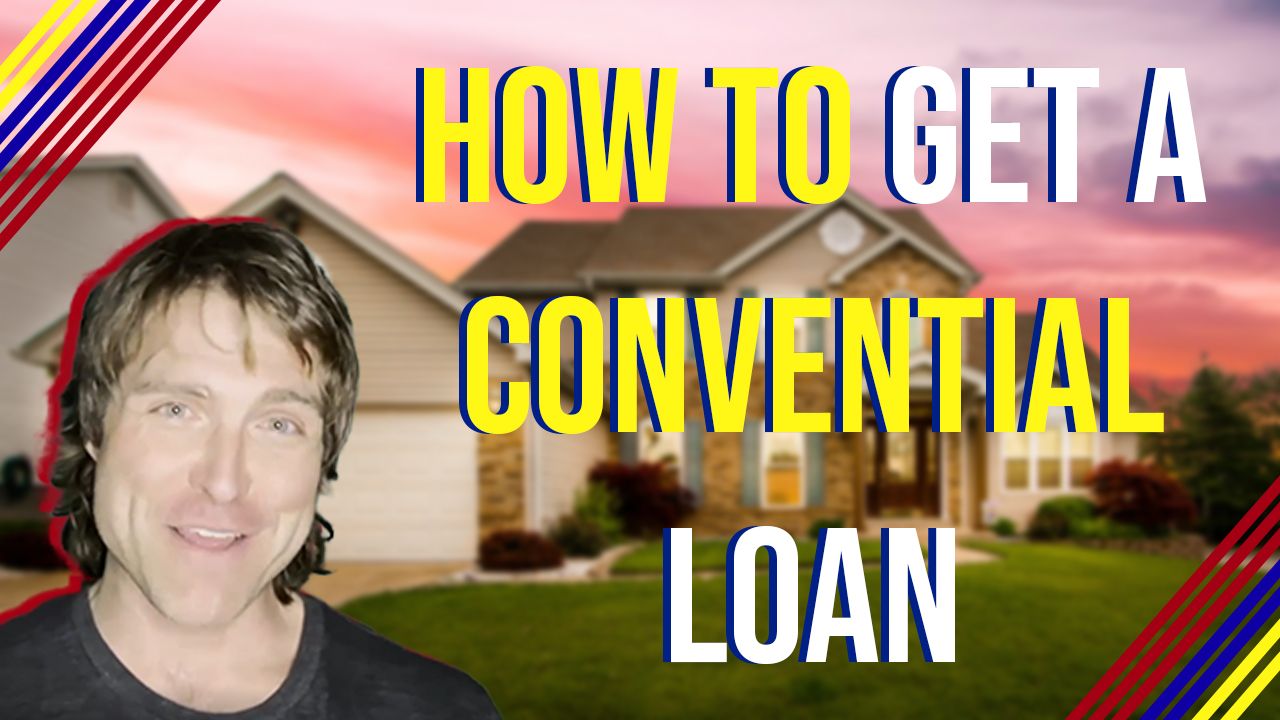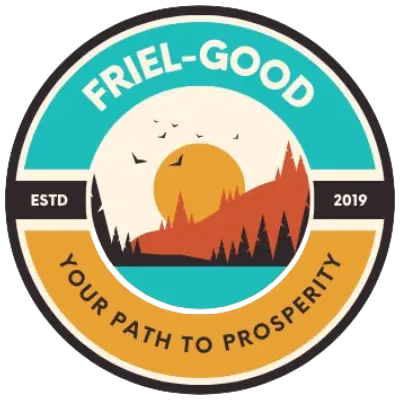
How To Get A Conventional Loan
Do you want to buy a house but don't know which loan product is best? In this video, I'm going to break down everything you need to know about a conventional mortgage. We'll talk about how to get qualified for a conventional loan and give you the pros and cons so you can decide if it's right for your situation.
Verify your mortgage eligibility (Jul 27th, 2024)Choosing Your Loan
If you want to buy a house, there are a ton of loan products out there - but which product is best? If you're hearing a lot about conventional mortgages and want to know if it's the right loan for you, I'm going to show you how to get started.
We're going to find out what a conventional loan is, what type of clients typically get one, and the steps involved in qualifying. We'll examine the pros and cons and, at the end of the video, we’re going to show you how to get your free calculator to can see what you might prequalify for.
Verify your mortgage eligibility (Jul 27th, 2024)What Is A Conventional Loan?
A conventional loan is any mortgage loan that's not insured or guaranteed by the government, such as those loan programs under the Federal Housing Administration, Department of Veterans Affairs, or the Department of Agriculture. Fannie Mae and Freddie Mac are federally backed mortgage companies created by the United States Congress. Neither institution originates or services its own mortgages, but instead, they buy them and guaranteed mortgages through lenders in the secondary mortgage market.
What's the key takeaway from a borrower’s point of view? These are standardized loan products. If you come to a bank or a broker like me, there’s going to be no difference in the way that you qualify. This is because a conventional loan will be sold off right after close to either Fannie Mae or Freddie Mac and securitized into a bond.
The Fannie Mae lending guidelines are over 2,300 pages long. The better qualified you are and the better seasoned your mortgage professional is, the easier it's going to be to get from start to finish when it comes to getting your mortgage loan.
Verify your mortgage eligibility (Jul 27th, 2024)The Ideal Client
The client type that conventional loans are most utilized for are people with a 700 credit score and above. This is based on my personal experience, servicing thousands of clients over the last decade. Those people also ideally have 5% down or more, though this is dependent on a few factors.
The basic metric that all banks judge their clients on is called a FICO score. This includes your credit score, your debt to income ratio, and the loan to value ratio - or how much the property is worth versus the amount you're borrowing. Those are the main triad of numbers that all banks are going to use to figure out your qualification for the conventional loan.
There are a couple of other things to consider, including whether the property is a primary or secondary occupancy - such as a second home, a vacation home, or an investment property. In total, there are three occupancy types regarding how to utilize this conventional loan. On top of that, there’s unit count; this looks at whether it's a one-unit condo, townhouse, or single-family dwelling, a two-unit duplex, a three-unit triplex, or a four-unit quad.
Verify your mortgage eligibility (Jul 27th, 2024)Loan To Value
Your occupancy, credit score, and whether you're a first-time homebuyer all affect how much you need to put down. This relates to your loan to value. For example, if you buy a property with one unit, a first-time homebuyer can put as low as 3% down, which is the loan to value of 95%.
If you’re buying a two-unit property, you can have to put down at least 15%. For a three or four-unit property purchase, you have to put down 25%. Again, these are the basic metrics for standardized loan products for a primary residence.
When it comes to your downpayment, my personal take in this competitive environment is to put 5% down, if not 10%. This would be my suggested rule of thumb. If you’re buying a $500,000 property, 5% down is $25,000. As you can see, buying a property is not as easy as you might think it is. There’s a lot of competition out there and not a lot of units for sale currently - and the guidelines are just what they are.
Verify your mortgage eligibility (Jul 27th, 2024)FICO Score
When it comes to your FICO score, the technical rule is that if we can get the computer AUS - or automated underwriting system - to approve your loan, your credit score should be good. Usually, at 620 and below, you don’t get approval. However, to get the very best terms, it is advisable that you have a score of at least 700.
If you have less than 700 credit, I would suggest working with somebody like me that can audit your credit report and show you how to boost those scores. The fact of the matter is about 30% of people out there have errors or omissions on their credit reports. Just the other day, I showed a client how to pay off four little old tradelines that he had. These were some student loans that he wasn’t paying on because of the COVID relief.
By just paying about $3,000, we boosted his score from 732 to 764. Guess how much of a rate difference that made in his rate? Over a quarter of a percentage point. It's advisable to have a 700 and above credit score, but the closer you can get to 750 and above, the better.
Verify your mortgage eligibility (Jul 27th, 2024)Second Home Rates
If you're buying a second home, the down payment requirement jumps to 10%. This is a 90% loan to value. For a one-unit investment property, that jumps to 15% down, or an 85% loan to value. The key for these occupancy types is the more money you put down, the better and easier it is to qualify.
The nice thing about those investment properties is that you can actually offset your principal, interest, taxes, and insurance for that unit. When we do the appraisal with a conventional loan, we include the comparative rent analysis - or the comparative rent schedule if it’s already leased out - to offset the carrying cost for your debt service coverage ratio.
How To Qualify
One of the main parts of qualifying for a conventional loan is your debt to income calculation. Some lenders will go up to about a 50% gross debt ratio. For example, let's say you make $120,000 a year. Divide that by 12 - which is $10,000 - and then divide that by half. In this example, you can have up to a $5,000 debt profile.
Verify your mortgage eligibility (Jul 27th, 2024)That $5,000 can include your house payment, car payment, credit cards, student loans, and more. My suggestion, of course, is to stay way below that. If you follow Dave Ramsey, you want to retire early, or you just don’t want to have a massive debt load, let’s stick below 40% or even 30% of your gross monthly income.
This way, you can max out your 401K or IRA, invest in a small business, and do everything else over time besides just going to work going at your 9 to 5, acting like a zombie, and having to pay frickin' bills every other payday. The idea is that yes, you can go up to these high debt leverage ratios - but it’s not advisable in my personal opinion. Always stick below your means.
Staying In Your Budget
If you’re a first-time homebuyer and can’t afford that $700,000 or $500,000 house or specific neighborhood, maybe start small. Buy a condo or a townhouse. If your equity increase in that property throughout a couple of years, you can sell that and move up as you learn how to budget.
Verify your mortgage eligibility (Jul 27th, 2024)When we follow up with our clients annually once they buy their first house, they focus on getting their budget under control, getting rid of consumer debt, and starting to pay off their 30-year mortgage loan - which is the typical loan that most people think about when they’re buying a property.
What we found is that about 85% of our clients after the first or second year want to start looking at doing a refinance into a 25 or even a 20-year loan to pay their home off even faster. Getting into a property with a conventional loan is often the cheapest way to do it if you have the right credentials.
The Cons Of The Conventional Loan
What are some cons of the conventional loan? First, if you have less than stellar credit - lower than 700 - another loan product might in be better suited for you in the short term. These options include an FHA loan, a VA loan (if you’re a vet and have the entitlement to use it), or a USDA loan (if those products are available for your disposal).
Verify your mortgage eligibility (Jul 27th, 2024)Another con for a conventional loan is if you’re looking to buy a two, three, or four-unit property. Of course, that larger down payment for the loan to value is required. When my wife and I bought a duplex here in Denver, we actually used an FHA loan. The two-unit property for a conventional loan takes 15% down, while an FHA loan only takes 3.5% down.
Being in the industry, I leveraged keeping our cash in the bank to get an FHA loan. Guess what we did? After a year went by - and when we had enough equity built into the property - we refinanced our property. We had over 15% equity so that we could get a conventional loan. This means the cons are sometimes only short-term. In the conventional loan space, the positives overall outweigh the cons. It's typically the cheapest loan product available to the broad base consumer market over other loan products.
Which Loan Is Right For You?
If you can qualify for a conventional loan - meaning you have a 700 score, a decent downpayment, and good debt ratios - then this will typically be the cheapest loan product to get. Here’s a quick pro-tip for you: think short term, medium-term, and long term in your analytics of what loan product best suits you.
Verify your mortgage eligibility (Jul 27th, 2024)Don’t get too bogged down with the thought process that you're going to live there forever. Fannie Mae, Freddie Mac, and the government have all done housing studies that show the average length of time somebody either keeps their house or their mortgage is less than six years. If you're thinking in the long-term of 30 years, the fact is that at some point in time most people want to get out.
We’ve seen this with our clients over the last decade. When their equity gets to a certain point, they want out. The cool thing about buying a property is how it can grow your net worth. Make sure to talk to your tax guy, of course, but if you are married, you can sell your house after you lived in it for two years. Any profit you have up to $500,000 is tax-free from the government. If you’re single, that number drops in half to $250,000.
So again, if you can’t afford the nicest house in the nicest neighborhood, start with a condo, an attached dwelling, or the crappiest house in the best neighborhood. Build up equity and keep rolling that into properties. If you do that 2-4 times throughout 20-30 years, at the end of that 30 years, you have a free house just on the equity you've built. A conventional loan is a fantastic way to do that.
Verify your mortgage eligibility (Jul 27th, 2024)We're Here To Help
I hope this gave you a good idea of what a conventional loan is, how to qualify, and if it's the right loan product for your situation. If you'd like to learn more about real estate here in the Denver Metro area, be sure to snoop around the channel and get your brain growing. We have a variety of videos that will give you all the information you need to buy and sell real estate.
Don't forget to subscribe to the channel so you never miss a new episode of the show. Here, we talk about budgeting, finance, buying a home, getting a mortgage, and building a lifestyle so you can live without stress and build toward financial independence. Check out our free loan qualification certificate so you can find out how much mortgage you can qualify for, and don't forget to scope out our free mortgage calculators.
Lastly, remember: our motto here is better than yesterday, so you can get out and enjoy those sunny days. See you on the next video!
Show me today's rates (Jul 27th, 2024)
